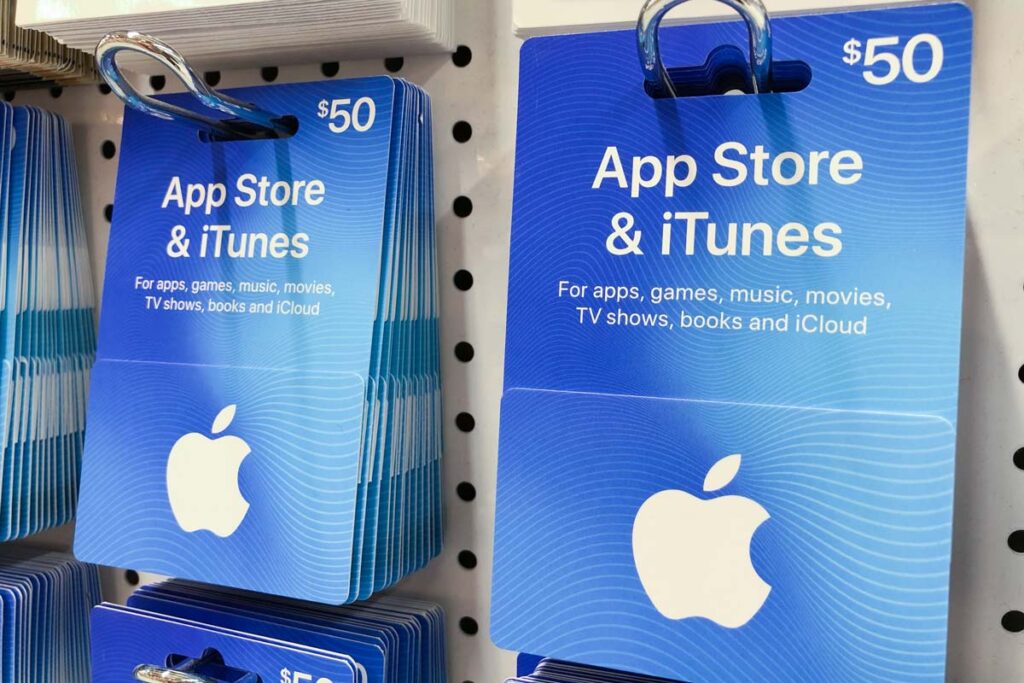
Update:
- Apple says it reached a settlement agreement in a class action lawsuit accusing the company of complicity in an iTunes gift card scam.
- The parties asked for an additional 60 days to create and sign a long-form settlement agreement along with a request for preliminary approval of a Jan. 3 joint status report.
- The parties say they “reached agreement on numerous previously open issues with respect to the settlement terms and have executed a term sheet memorializing the material terms of the settlement.”
- Representatives for plaintiffs Michel Polston, Nancy Martin, Michael Rodriguez, Maria Rodriguez and Andrew Hagene met with Apple on July 28 and were granted a 30-day temporary stay on Aug. 1, a 30-day extension on Aug. 30 and a 90-day extension on Oct. 11.
(July 20, 2022)
A new class action lawsuit claims Apple profits from iTunes gift card scams.
The plaintiffs allege Apple knowingly enables scammers who trick their victims into paying large amounts of money via iTunes gift cards.
The complaint says Apple allows the scams to continue because the company allegedly keeps a 30% commission on the proceeds.
The class action lawsuit points out Apple has a website dedicated to the scams, but allegedly doesn’t do much to prevent them from happening, despite calling the scams “formulaic,” Tech Crunch reports.
The plaintiffs say in addition to keeping the commission, Apple retains iTunes gift card funds for four to six weeks before paying vendors, but then falsely tells the public the scammed money is “irretrievable,” according to Tech Crunch.
The gift card scam “deprives consumers of hundreds of millions of dollars or more,” the class action lawsuit states, adding that most people never report the scam to the Federal Trade Commission (FTC).
However, the complaint continues, the iTunes gift card scams that were reported to the FTC between 2015 and 2019 amounted to in excess of $93.5 million.
“These publicly reported dollar amounts include the losses of only the subset of victims who fill out a detailed online FTC form asking for their personal information. As a result, this $93.5 million figure appears to be only the tip of the iceberg,” the complaint says. “Even if only 10% of scam victims report to the FTC … the iTunes gift card scam would approach $1 billion, with Apple retaining $300 million in commissions.”
The class action lawsuit alleges the scams happen in one of two ways.
Using the first method, scammers use the money on the gift cards they obtain via scams to buy App Store and iTunes content for apps they control, the complaint says. With this method, scammers receive a payment from Apple four to six weeks later; Apple has shut down apps it has found in violation of the company’s fraud policies.
With the second method, scammers sell gift card numbers to third parties that use the numbers to make purchases via the App Store or iTunes, the complaint explains.
In both scenarios, the plaintiffs say, Apple keeps its 30% cut.
The plaintiffs say Apple should be able to catch the scams at various points, according to Apple Insider, thanks to the company’s ability to track all the key points in the process, from point of sale to Apple ID upload to payment.
The class action lawsuit seeks to establish a nationwide class and two subclasses.
The nationwide class would include everyone in the U.S. who “purchased one or more iTunes gift cards, provided the redemption codes to people unknown to them who sought the codes under false pretenses, and were not refunded the value of the iTunes gift cards by Apple” during the class period of Jan. 1, 2015, to present.
A proposed Contact Subclass would include those who contacted Apple about the scam but were not refunded, and an Elder Subclass would apply to anyone in the U.S. 65 or older.
The complaint alleges Apple has violated the California Consumers Legal Remedies Act, California Unfair Competition Law, California False Advertising Law and Oregon Elder Persons and Persons with Disability Abuse Prevention Act, as well as California and other states’ elder abuse laws.
The plaintiffs claim Apple has committed a breach of contract, become unjustly enriched through the scams, breached the Implied Covenant of Good Faith and Fair Dealing and aided and abetted international torts.
In addition to a jury trial, the plaintiffs are asking the Court to certify the class action and to award “actual, general, special, incidental, statutory, punitive, and consequential damages and restitution,” pre- and post-judgment interest and reasonable attorneys’ fees and costs.
The plaintiffs also request that the court grant injunctive or declaratory relief, including an order requiring Apple “to refrain from seeking to enforce the iTunes gift card terms and conditions on victims of gift card scams who did not register or redeem the iTunes gift card, and to refrain from transferring any money to Apple Developer accounts associated with gift card scams.”
Do you believe you have been the victim of an iTunes gift card scam? Tell us about it in the comments.
The plaintiffs are represented by Christopher M. Burke, Alex M. Outwater and Joseph P. Guglielmo of Scott + Scott Attorneys at Law LLP; and Anthony F. Fata, Nyran Rose Rasche and Nickolas J. Hagman of Cafferty Clobes Meriwether and Sprengel LLP.
The Apple iTunes gift card scam class action lawsuit is Carl Barrett, et al. v. Apple Inc., et al., Case No. 5:20-cv-04812 in U.S. District Court for the Northern District of California, San Jose Division.
Don’t Miss Out!
Check out our list of Class Action Lawsuits and Class Action Settlements you may qualify to join!
Read About More Class Action Lawsuits & Class Action Settlements:




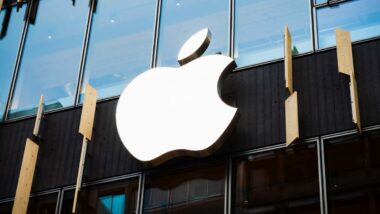
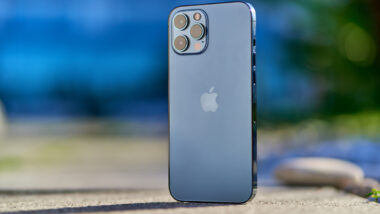

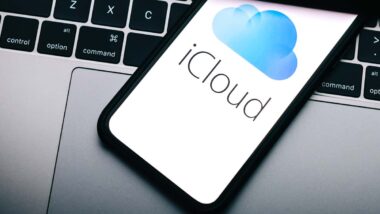




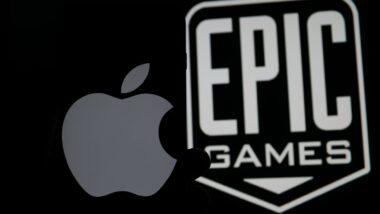

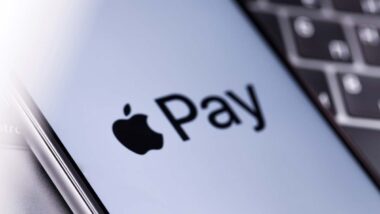
15 thoughts onApple settles gift card scam class action
Apple shut down my account saying that I breached their terms and conditions- that my account had redeemed an iTunes gift card belonging to someone else… which I never did and have n way of knowing when because they won’t tell me what happened or when. I have no way to know how to fix this and now I am blocked from years of music, movies and iCloud backed up data. Everything is cut off. I
Can’t even receive email because the iCloud storage I purchased isn’t renewed so my mailbox is full. When I contact media services for help they basically told me it was done and I wouldn’t be able to retrieve it. I have not participated in any iTunes gift card scam … but I am being punished. I was a long time apple customer but this is beyond belief that they can behave this way and just cut you off without any explanation. Apple is not the company it once was.
Please add me
Please add me.
add me